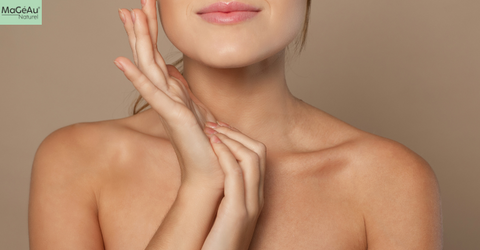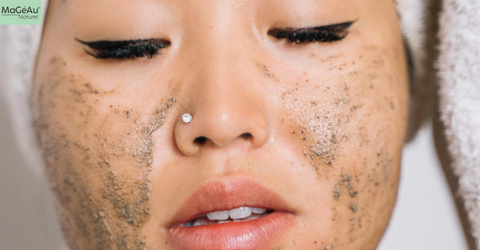When cancer treatment ends, many people breathe a sigh of relief. The battle was long, the journey tough, and now it's time to heal. But here’s a truth not many talk about: post-cancer skin isn’t “fixed” after treatment. In fact, it often needs even more care than before.
Whether it was chemotherapy, radiation, or other medical treatments, the impact on your skin doesn’t just disappear overnight. If you're a survivor, you might already know this, but here’s what’s not often said: your skin’s journey doesn’t end with your last hospital visit.
Let’s unpack what’s really going on, and how you can support your skin in the most natural, soothing way possible, with ingredients your body will truly thank you for.
Why Does Skin Suffer After Cancer Treatment?
Treatments like chemotherapy and radiation are powerful. They target cancer cells, yes, but they also affect healthy cells, including skin cells. Many survivors experience:
- Dry, flaky skin that no amount of regular lotion seems to fix
- Sensitivity and redness, especially in previously treated areas
- Changes in texture and tone leading to your skin feeling thinner or more fragile
- Irritation from common skincare products, especially those with synthetic chemicals or strong fragrances
Despite finishing treatment, your skin may still feel like it’s “under attack.” That’s because it’s in recovery mode, and recovery takes time, sometimes a lot of it.
The Truth: Healing Skin Needs Constant, Gentle Support
One of the biggest myths around cancer recovery is that once the visible side effects fade, your skin is back to normal. But survivors often discover that their skin’s sensitivity continues long after treatment.
Here’s what most people don’t know:
- Your skin barrier can stay weakened for years
- Your body’s ability to retain moisture may be reduced
- Common drugstore products can actually make things worse, triggering reactions
- Ingredients like sulphates, parabens, and artificial fragrances can aggravate healing skin
This is where choosing the right skincare—vegan, organic, and eco-friendly—becomes essential.
Why Vegan and Organic Skin Care Matters for Survivors
Skin care after cancer needs to be:
- Gentle – because your skin is still sensitive
- Hydrating – because dryness is a common issue
- Free from harsh chemicals – because your body’s still rebuilding strength
- Packed with nourishing ingredients – to support natural healing
That’s why organic vegan skincare products are growing in popularity among survivors. They're not just trendy, they're safe, often more effective, and kinder to your body (and the planet).
5 Essentials for Ongoing Post-Cancer Skin Care
Here’s a simple, powerful skincare routine that supports healing and protects your skin, each product made with natural, gentle ingredients and no hidden nasties.
1. Gentle Cleanser – Your Skin’s First Line of Defence
Key Ingredients: Magnesium, Vitamin E, Beet Root Extract
After cancer, your skin’s natural barrier is delicate. A harsh cleanser will strip it even further. Instead, choose a gentle formula cleanser that:
- Cleans without drying
- Soothes irritation
- Helps rebuild your skin’s natural barrier
Magnesium calms inflammation, Vitamin E supports skin repair, and Beet Root Extract adds antioxidant protection. A gentle cleanser like this is perfect for starting and ending your day with care.
2. Hydrating Shower Gel – Because Even Water Can Be Drying
Key Ingredients: Grape Seed Oil, Aloe Vera, Turmeric
Hot showers can dry out your skin even more, but a hydrating, skin-loving shower gel can help. Look for ingredients that:
- Clean without stripping oils
- Hydrate deeply
- Calm any redness or itchiness
Grape Seed Oil is rich in vitamins and antioxidants, Aloe Vera soothes like no other, and Turmeric brings powerful anti-inflammatory properties.
3. Body Lotion – Lock in Moisture, All Day Long
Key Ingredients: Shea Butter, Aloe Vera, Magnesium
Post-treatment skin craves moisture. A rich but non-greasy lotion with Shea Butter helps seal in hydration, while Aloe Vera soothes and Magnesium calms irritated areas. Use daily to:
- Soothe dryness
- Support skin elasticity
- Improve texture and feel
4. Hand Lotion – Small Area, Big Difference
Key Ingredients: Cacao Butter, Aloe Vera, Magnesium, Vitamin E
Hands go through a lot, washing, sanitising, exposure to the elements. If your skin feels tight, cracked, or itchy, a good hand lotion is a must.
Cacao Butter deeply nourishes, Magnesium and Vitamin E reduce sensitivity, and Aloe Vera keeps your hands soft, not sticky. Keep this one in your bag or by your bedside.
5. Body Oil – The Finishing Touch
Key Ingredients: Grape Seed Oil, Magnesium, Vitamin E
Think of body oil as your skin’s protective shield. It can be used alone or over your lotion for added hydration. It:
- Helps prevent moisture loss
- Eases irritation
- Leaves skin glowing, not greasy
Perfect for post-shower or before bed, especially if your skin feels tight or flaky.
Extra Tips for Skin Care After Cancer
- Always Patch Test – Even Familiar Products May Trigger Reactions: After chemotherapy or radiation, your skin's tolerance changes dramatically. Even products you once used without issues can now cause irritation, rashes, or burning. Always do a patch test behind your ear or on the inside of your wrist before applying anything new.
- Choose Aggressive Fragrance-Free When Possible: Post-treatment skin often becomes hyper-reactive to scents, even natural ones like lavender or citrus. Avoid synthetic fragrances for more safety. Unscented or mild scented is safer until your skin fully rebuilds its barrier.
- Prioritise Rebuilding the Skin Barrier: Look for skincare formulas rich in ceramides, magnesium, and natural oils (like grape seed or avocado). After cancer treatment, your skin’s barrier function is compromised, making you more prone to infections, extreme dryness, and inflammation.
- Be Cautious With Temperature Extremes: Radiation and chemotherapy can make skin more sensitive to heat and cold. Protect skin from hot showers, cold winds, and direct sun exposure. Use lukewarm water when bathing and wear protective clothing when outdoors.
- Hydrate Inside and Out – But Be Mindful of Medication Interactions: Some post-cancer medications (like hormone therapies) can dry out your skin. Besides drinking water, consider moisturising immediately after showers and even before bedtime with natural body lotion. However, always check with your doctor before adding supplements like collagen or hyaluronic acid internally.
- Don't Exfoliate Aggressively – Gentle Is Key: Avoid scrubs, acids (like AHAs/BHAs), or retinols unless specifically advised by your oncology dermatologist. Your skin needs time to strengthen naturally without being forced to "turn over" rapidly.
Healing Doesn’t End With Treatment: The Ongoing Journey of Post-Cancer Skin Care
Your skin has been through a lot, it’s strong, but it’s also tender. The myth that skin is “fixed” after cancer treatment is just that: a myth. Real recovery takes time, patience, and care.
With the right vegan skincare products, organic skin care products online, and eco-friendly skin care products, you can rebuild your skin’s health, naturally, gently, and effectively.
You’ve already fought hard. Now it’s time to nourish your skin with the love it truly deserves.





Comments (0)
There are no comments for this article. Be the first one to leave a message!